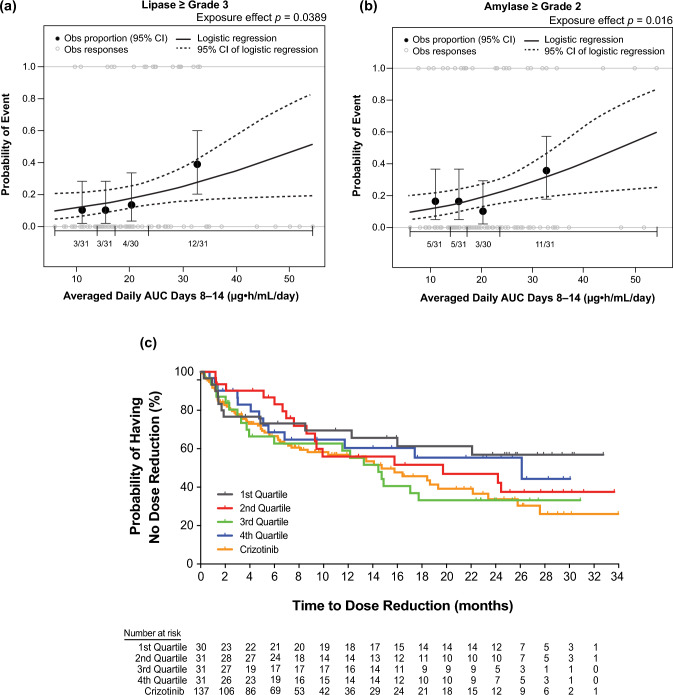Fig. 12.
Exposure–safety analyses. Observed (Obs) incidence and predicted probability of a grade ≥ 3 lipase increase and b grade ≥ 2 amylase increase as a function of brigatinib exposure. The relationship between time‐averaged area under the plasma concentration–time curve (AUC) across days 8–14 of cycle 1 and adverse event probability was examined using logistic regression models. The analysis demonstrated a statistically significant relationship between exposure and grade ≥ 3 lipase increase and grade ≥ 2 amylase increase. c Kaplan–Meier estimates for the time to first brigatinib dose reduction stratified by time‐averaged AUC quartiles. To explore the relationship between brigatinib exposure and dose reductions, Kaplan–Meier plots of the time to first brigatinib dose reduction were generated for brigatinib exposure (time‐averaged AUC to the first occurrence of a dose reduction) quartiles. No discernible effect of brigatinib exposure on the time to first brigatinib dose reduction was noted. Values for the crizotinib arm of the study are superimposed; however, no exposure values were available for crizotinib. Dotted curves represent the 95% confidence interval (CI) of the logistic regression model prediction. The horizontal black line separated by vertical black solid lines denotes the brigatinib exposure range in each quartile. Black dots (vertical lines) represent the observed proportion of patients (95% CI) in each quartile. n/N is the number of patients with events/total number of patients in each quartile. Gray open circles represent observed individual data [25]. Reprinted from Gupta et al. [25]

